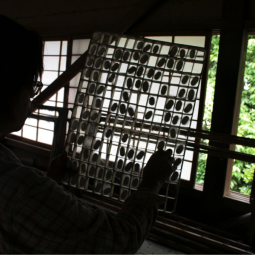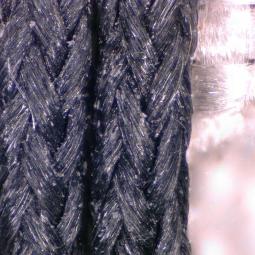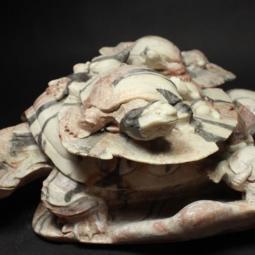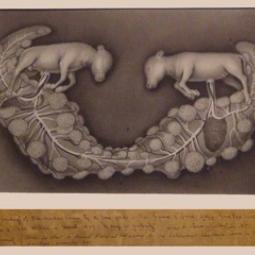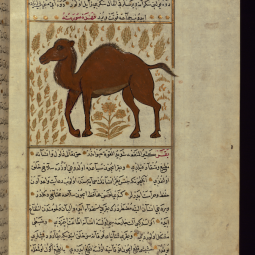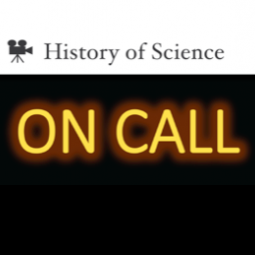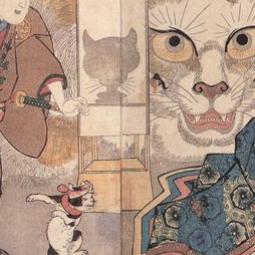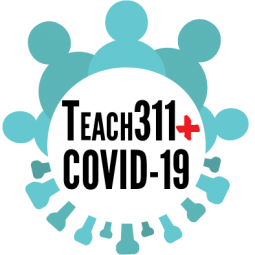Raum 151
Lisa Onaga works on questions related to the ownership and authorship of knowledge connected to biological materiality at the interface of invertebrate and human life in agricultural, laboratory, and industrial settings, especially in Japan. Her forthcoming monograph, Cocoon Cultures: The Entangled History of Biology and Silk in Japan Since 1840 examines how the pursuit of the perfect silkworm cocoon served as a key means for cultivators and scientists to explore how genes and environments interacted in sexually reproducing living things during a period of Imperial commitment to foster industrial raw silk manufacturing and trade. This sociologically informed history of sericulture and genetics has given rise to adjacent research on Japanese sericulture in colonial Taiwan and in postwar Southeast Asia. Her newer project, organized under the working title of “Biomaterial Matters,” examines a suite of multidisciplinary postwar histories of silk as a biomaterial, focusing on how scientists, engineers, designers, weavers, and artists practically and theoretically worked with this material locally, regionally, or globally. The case of silk textiles produced on Amami Ōshima, an island in the southern periphery of Japan, provides an anchor for analyzing knowledge claims about animal and plant-based proteins and fibers in history, and how they have been rendered into intellectual and sociocultural resources.
Lisa Onaga received her PhD in Science & Technology Studies from Cornell University and was a member of the History faculty at Nanyang Technological University in Singapore between 2012 and 2018 before she moved to Germany to undertake new responsibilities as Senior Research Scholar at the MPIWG, where she leads the Working Groups: "Proteins and Fibers" and "Reclaiming Turtles All the Way Down."
Her recent work includes Making Animal Materials in Time (co-edited with Laurence Douny) and “Reprogramming the Story: Insects as Edible Vaccines.” She has previously held fellowships with the UCLA Institute for Society and Genetics, D. Kim Foundation for the History of Science and Technology in East Asia, Deutsches Institut für Japanstudien, and was a visiting scholar at the Institute for Advanced Studies on Asia at the University of Tokyo. She also co-founded Teach311+Covid-19 Collective, a multi-language project dedicated to the study of disasters and crises. She currently serves on the editorial board of Historical Studies of the Natural Sciences and as an associate editor with History and Philosophy of the Life Sciences. Lisa is currently serving a term as a Member of the German National Committee of the Division of History of Science and Technology of the International Union of History and Philosophy of Science and Technology
Current Projects
Completed Projects
Selected Publications
Onaga, Lisa (2024). “Silk: A Reconsideration of ‘Failure’ in Sericulture.” In The Oxford Handbook of Agricultural History, ed. J. Whayne, 424–442. New York, NY: Oxford University Press. https://doi.org/10.1093/oxfordhb/9780190924164.013.23.
Read More
Onaga, Lisa and Dominik Huenniger (2024). “Introduction: Expanded Perspectives on Tiny Animals as Epistemic Agents.” Isis 115 (1): 126–130. https://doi.org/10.1086/728965.
Read More
Onaga, Lisa and Luísa Reis-Castro (2024). “‘Ambivalent Insects’ as Tools and Targets.” Isis 115 (1): 152–156. https://doi.org/10.1086/728886.
Read More
Onaga, Lisa and Laurence Douny, eds. (2023). Making Animal Materials in Time. Special issue, Historical Studies in the Natural Sciences 53 (3). Oakland, CA: University of California Press. https://online.ucpress.edu/hsns/issue/53/3.
Read More
Onaga, Lisa and Laurence Douny (2023). “Making Animal Materials in Time.” Historical Studies in the Natural Sciences 53 (3): 197–220. https://doi.org/10.1525/hsns.2023.53.3.197.
Read More
Onaga, Lisa (2022). “Reprogramming the Story: Edible Insects as Vaccines.” International Review of Environmental History 8 (1): 111–120. https://doi.org/10.22459/IREH.08.01.2022.07.
Read More
Onaga, Lisa (2021). “A Matter of Taste: Making Artificial Silkworm Food in Twentieth-Century Japan.” In Nature Remade: Engineering Life, Envisioning Worlds, ed. L. A. Campos, M. R. Dietrich, T. Saraiva, and C. C. Young, 115–134. Chicago, IL: University of Chicago Press.
Read More
Onaga, Lisa and Harry Yi-Jui Wu, eds. (2018). Articulating Genba: Particularities of Exposure and its Study in Asia. Special issue, Positions: Asia Critique 26 (2). Durham, NC: Duke University Press. https://doi.org/10.1215/10679847-4351590.
Read More
Onaga, Lisa (2018). “Measuring the Particular: The Meanings of Low-Dose Radiation Experiments in Post-1954 Japan.” Positions: Asia Critique 26 (2): 265–304. https://doi.org/10.1215/10679847-4351566.
Read More
Onaga, Lisa (2017). “Reconstructing the Linear No-Threshold Model in Japan: A Historical Perspective on the Technics of Evaluating Radiation Exposure.” Technology and Culture 58 (1): 194–205. https://doi.org/10.1353/tech.2017.0009.
Read More
Onaga, Lisa (2015). “More than Metamorphosis: The Silkworm Experiments of Toyama Kametarō and his Cultivation of Genetic Thought in Japan’s Sericultural Practices, 1894–1918.” In New Perspectives on the History of Life Sciences and Agriculture, ed. D. Phillips and S. Kingsland, 1st ed., 40:415–438. Cham: Springer.
Read More
Onaga, Lisa (2014). “Ray Wu as Fifth Business: Deconstructing Collective Memory in the History of DNA Sequencing.” Studies in History and Philosophy of Science. Part C, Studies in History and Philosophy of Biological and Biomedical Sciences 46: 1–14. https://doi.org/10.1016/j.shpsc.2013.12.006 .
Read More
Onaga, Lisa (2010). “Toyama Kametaro and Vernon Kellogg: Silkworm Inheritance Experiments in Japan, Siam, and the United States, 1900–1912.” Journal of the History of Biology 43: 215–264. https://doi.org/10.1007/s10739-010-9222-z.
Read More
Onaga, Lisa and Luísa Reis-Castro (2024). “‘Ambivalent Insects’ as Tools and Targets.” Isis 115 (1): 152–156. https://doi.org/10.1086/728886.
Read More
Past Events
Colloquium
Foregrounding Fibers: A Multidisciplinary Exploration of Materiality and Knowledge
MORETalk
Keynote Address. On Saving the Planet with Proteins: The Historical Significance of Shifting Biological Engineering into Post-Translational Space-Time
MOREWorkshop
The Making of a Cage Bird Class: African Grey Parrots in Early Modern Europe
MORE
